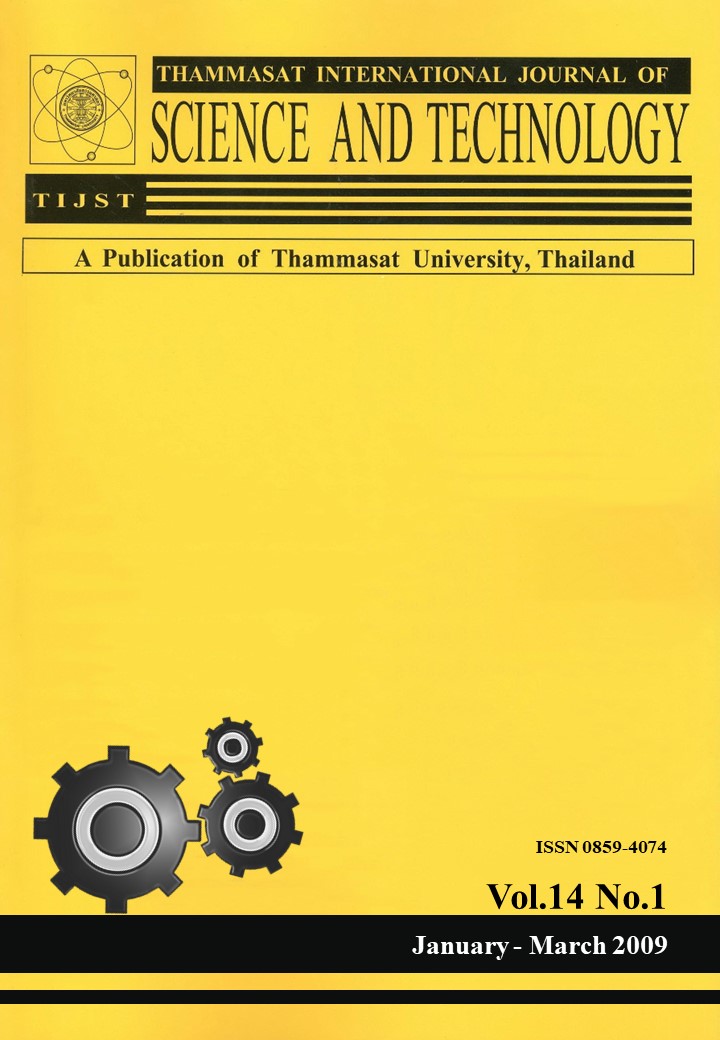Cytotoxic Effect of Hep88 mAb: A Novel Monoclonal Antibody Against Hepatocellular Carcinoma
Keywords:
Hepatocellular carcinoma, Monoclonal antibody, Cell cytotoxicity, MTT colorimetric assay, Growth inhibitionAbstract
Fifteen novel monoclonal antibodies (mAbs) against S102, an establishedhepatocellular carcinoma cell line from a Thai patient, were tested at 50-500 μg/mlconcentration for cell proliferation inhibitory activity against various types of commercialhuman cancer cell lines i.e., HepG2 (liver), Chago (lung), A375 (melanoma), Kato-III(gastric) and SW 620 (lymph node). To compare these inhibitory activity effects, we alsoverified them against a normal liver cell line, Chang liver, as well as against two of theestablished hepatocellular carcinoma cell line from Thai patients, S102 and R12 at the samemAbs concentration. The viability of cells after exposure to these 15 novel mAbs wasdetermined by MTT (3-[4,5-dimethylthiazol-2-yl]-2,5-diphenyltetrazolium bromide) colorimetricmethods. The result showed that, at their IC50 concentration against S102, only 4 ofthem (Hep20: IC50 = 100 μg/ml, Hep44: IC50 = 300 μg/ml, Hep88: IC50 = 100 μg/ml andHep94: IC50 = 200 μg/ml mAbs) illustrated cell proliferation inhibitory activity against thehepatocellular carcinoma cell lines including HepG2, S102 and R12. Interestingly, Hep88mAb inhibited S102 and R12 cell growth by approximately 70 and 95%, respectively, at 100μg/ml, whereas it gave a tumoricidal effect to the HepG2 cell line at the same concentration.It had no effect on the normal liver cell line, Chang liver. Moreover, when compared with theeffect from an anti-oncogenic cytokine, an interferon alfa-n1 (IFN) at its IC50 concentration(IC50 = 1,000 U/ml), Hep88 mAb showed lesser cytotoxicity on the normal liver cell line.These results suggest that Hep88 mAb might play an important role not only in inhibitoryeffects but also in lethal effects on hepatocellular carcinoma cells without disturbing normalcells. Accordingly, this antibody may be a promising tool for the therapeutic era ofhepatocellular carcinoma in the next decade.Downloads
How to Cite
Puthonga, S., Rojpibulstitb, P., & Buakeawa, A. (2014). Cytotoxic Effect of Hep88 mAb: A Novel Monoclonal Antibody Against Hepatocellular Carcinoma. Science & Technology Asia, 14(1), 95–104. Retrieved from https://ph02.tci-thaijo.org/index.php/SciTechAsia/article/view/15871
Issue
Section
Articles








